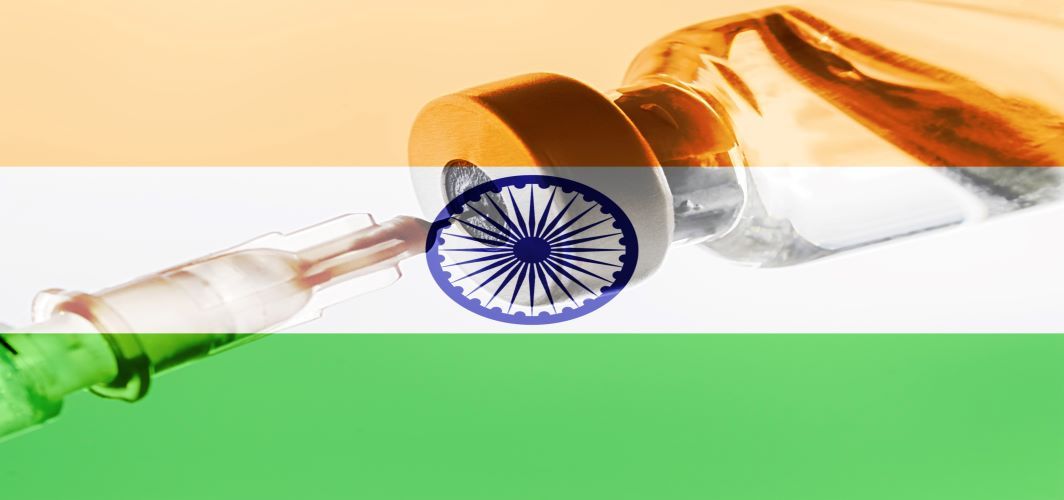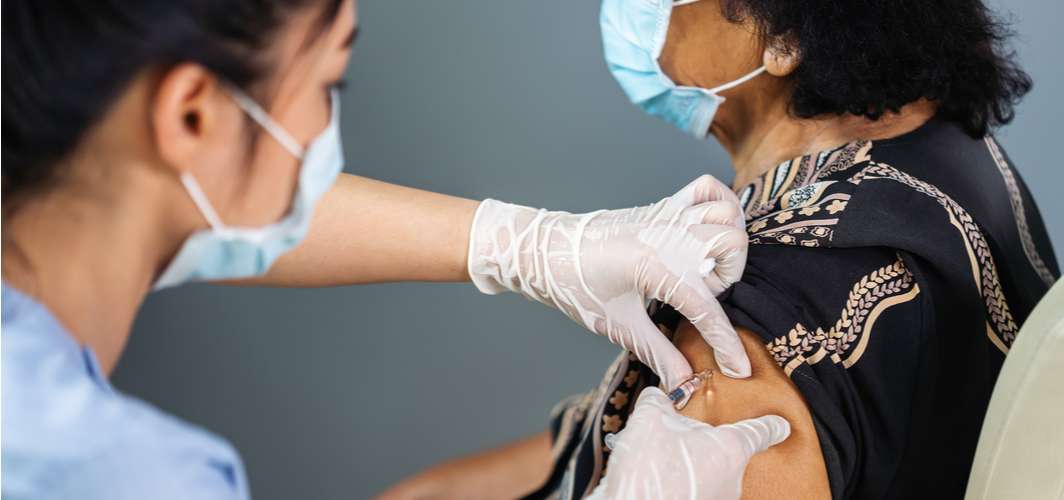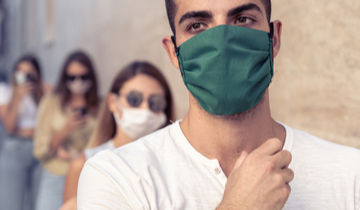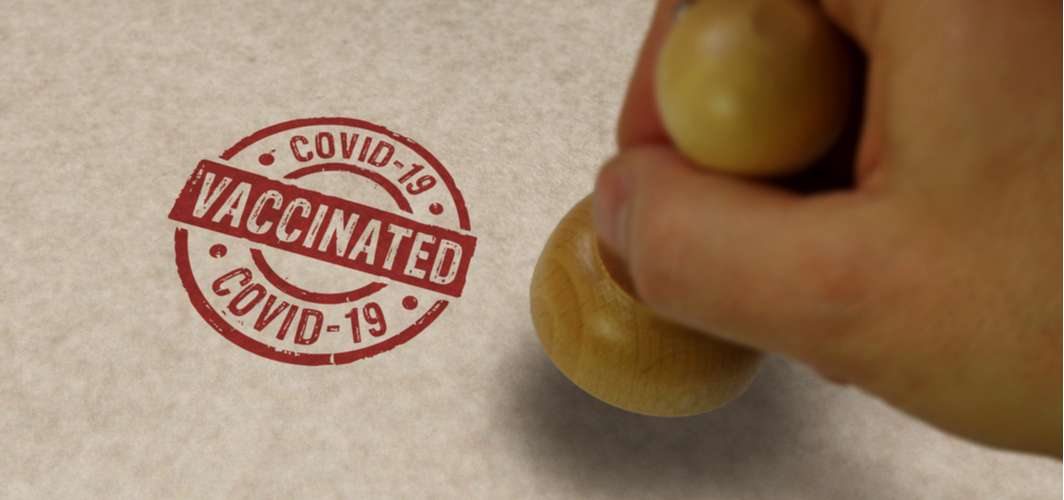With each passing day, the world is getting closer to a COVID-19 vaccine. The top vaccine contenders have already entered the final phase of human trials. The next big challenge will be to start and ramp up the production of those vaccines that clear the final trials. All eyes will be on - India - the pharmacy to the world.As the largest global manufacturer of vaccines, India will play a strategic and central role in the global supply and distribution of various possible COVID-19 shots. However, the country will also likely face immense logistical challenges. A huge population, an overburdened healthcare system, and a lack of infrastructure will test India’s ability to make and distribute enough vaccine doses to bring its own outbreak under control.
India: Global leader in vaccine production
In October 2020, while addressing the Grand Challenges Annual Meeting 2020, billionaire philanthropist Bill Gates said, “India’s research and manufacturing will be critical to fighting COVID-19 especially when it comes to making vaccines at large scale.” His statement reflects the growing international consensus over India’s significant role in the development and production of the COVID-19 vaccine. Over the years, India has emerged as the world’s leading manufacturer of vaccines. Nearly, 60% of the vaccines sold all over the world are produced in India. The country has the largest global capacity for WHO prequalified vaccine manufacturing.
Major international agencies such as The United Nations Children Emergency Fund (UNICEF) and Global Alliance for Vaccines and Immunization (GAVI) procure most of their vaccine supplies for developing and underdeveloped countries from India. Vaccines produced in India account for 60 to 80 percent of the United Nations’ annual procurement.
A number of factors have played an important role in cementing India’s position as the leading manufacturer of vaccines. Some of those include:
a) Large pool of scientists and skilled professionals
b) Competitive R&D expenditure
c) Affordable clinical trials
d) Relatively low cost of manufacturing
e) Large domestic consumer base
g) Export-oriented manufacturing
Serum Institute of India
Pune-headquartered Serum Institute of India is the world's largest manufacturer of vaccines by volume. The company produces 150 crore vaccine doses for different diseases annually. Serum Institute supplies nearly 20 types of vaccines to 170 countries. It specializes in the low-cost manufacturing of vaccines for conditions such as polio, pertussis, BCG (Bacillus Calmette–Guérin), diphtheria, and tetanus. Nearly 80% of the vaccines manufactured by the company are exported.
For COVID-19, Serum Institute has signed a pact with the University of Oxford and pharma company AstraZeneca to produce 100 crore doses of their coronavirus vaccine once it is approved. The Oxford/AstraZeneca vaccine is widely seen as one of the forerunners in the COVID-19 vaccine race. Serum Institute has already started manufacturing 20 lakh samples of the vaccine doses for use in regulatory clearances and testing. It is also conducting phase 3 human trials on thousands of patients in India. The company can reportedly make 6 to 7 crore doses a month at full capacity.
If the Oxford/AstraZeneca vaccine works, half of the company’s stock would be reserved for India and the rest would be supplied to low-income nations through GAVI. The company also has tie-ups with US-based Novavax and Codagenix for developing and testing their candidates. Serum Institute will begin clinical trials of the Novavax vaccine in India by Oct ’20, and will manufacture 100 crore doses of the vaccine for India and other low income countries in 2021.
Other key Indian players and indigenous COVID-19 vaccine candidates
Currently, two Indian companies —Bharat Biotech and Zydus Cadila — are working on vaccines that are in phase 1 and 2 trials.
Hyderabad-based Bharat Biotech is working with the Indian Council of Medical Research to develop COVAXIN, India’s first COVID-19 vaccine candidate. The whole inactivated vaccine is currently in phase 2 clinical trials. Bharat Biotech has sought regulatory approval to start phase 3 trials.
Ahmedabad-based Zydus Cadila is developing ZyCoV-D, India’s second indigenous vaccine candidate. The DNA-based vaccine is currently in phase 2 clinical trials. According to the company, the vaccine was found to be safe and well-tolerated in healthy participants in the phase 1 trial.
Various Indian pharmaceutical companies are partnering with global pharma companies to manufacture and test their candidate vaccines.
Hyderabad-headquartered Biological E has struck a partnership with Johnson and Johnson for their COVID-19 vaccine. The firm has also entered into a partnership with Janssen Pharmaceutica, Belgium to manufacture its candidate vaccine. The company is also reportedly in talks with Baylor College of Medicine in Houston, USA to manufacture their candidate vaccine.
Hyderabad-based Dr Reddy's Laboratories has a deal to conduct phase 2/3 human trials of Sputnik vaccine developed by Russia’s Gamaleya Research Institute of Epidemiology and Microbiology, in India. If the trials are successful, the company has said they will produce 10 crore doses of the Russian vaccine. Aurobindo Pharma, Mynvax, Panacea Biotech are some of the other Indian pharma companies that are working on COVID-19 vaccines.
Potential challenges to COVID-19 vaccination in India
An approved COVID-19 vaccine is still a couple of months away and a number of critical challenges exist.
Vaccines are temperature sensitive and can get damaged when exposed to excessive heat, light, or cold. A temperature-controlled 'cold' supply chain is crucial for the transport and storage of vaccines. Currently, the country has over 27,000 cold chain points. However, according to experts, 16,000 more cold chain storages would be required in the coming days. A significant percentage of the population of India lives in remote areas like forests, mountainous regions, islands, etc. Getting vaccines to people living in these regions will be a daunting task. The challenge can be understood from the fact that it took nearly 3 years to deliver measles-rubella vaccine to 40.5 crore children in India.
India is a low-income country with crores of people living below the poverty line. They will need help in gaining access to the vaccine. The Serum Institute expects the Oxford/AstraZeneca vaccine to be priced affordably. Syringes, glass vials, other peripheral devices, training, transport, and storage will only add to the cost of the vaccination program.
Role of healthcare providers:
Against this backdrop, leading healthcare providers who already have an extensive infrastructure are gearing up to take on this mammoth challenge and offer their support.
Apollo Hospitals recently announced that it was prepared to administer 10 lakh COVID-19 vaccines every day after it is available, to support the Government. The group will leverage its robust pan-India network of 19 medicine supply hubs with cold chain facilities and use its 70 hospitals, 400-plus clinics, 500 corporate health centers, 4,000 pharmacies along with its omnichannel digital platform Apollo 247 to ensure massive administration capacity of COVID-19 vaccines.
Conclusion:
There is a broad agreement within the scientific community and industry experts over India’s role in the fight against the pandemic. In the coming days, with the likely availability of a vaccine, the pharmaceutical industry of India will ramp up vaccine production to meet the domestic and international demand. However, the success of mass COVID-19 vaccination within the country will also depend on other factors like the timely implementation of measures aimed at overcoming the existing logistical hurdles.
Register yourself with the vaccine tracker for the latest updates on COVID-19 vaccines.







